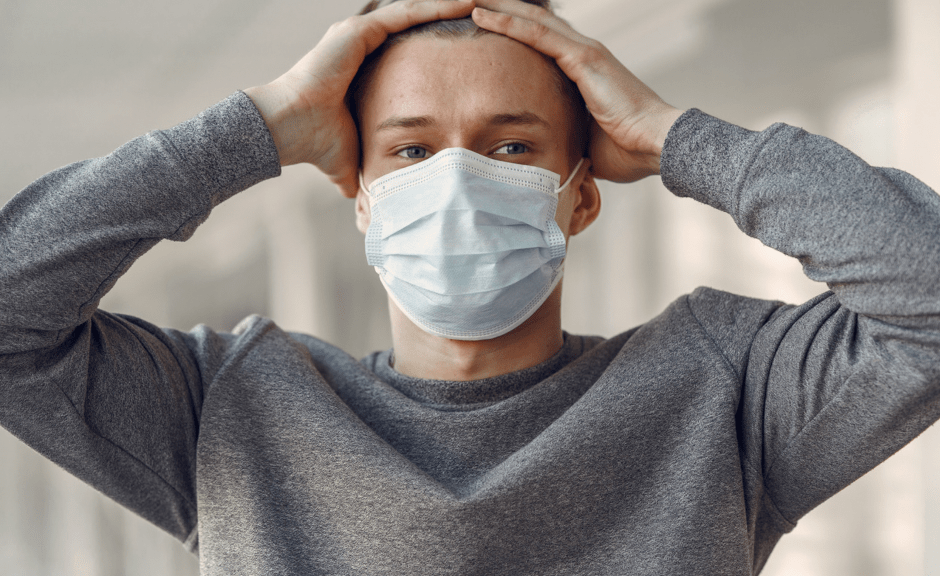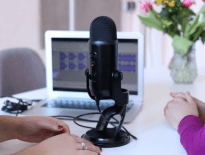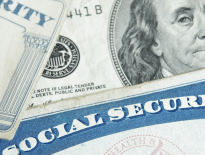
Taking Stock of Our Collective Stress and Moving Toward a Healthier World
I was teaching some of my classes about stress and effects this week, as I do every semester in all my classes, and I got around to looking up the American Psychological Association’s latest numbers for stress in the American public. And whew, it really hit me how much our collective stress levels have gone up in the last 20 years since just before 9/11. In this article I plan to unwrap some of the identified reasons our stress has risen as well as offer some impacts and ways we can keep working to collectively cope with this situation as it continues.
Who? Me? Yup.
As a reminder, I’m a pastor’s kid with a PhD in Communication. My research and teaching focuses on stress, trauma, and conflict communication. And I’ve talked here about some of this research repeatedly, but especially here, and here, and here.
And yeah, that means I don’t have just a vague sense of how stress impacts us and our relationships—I’m regularly looking at numbers and data and concepts about how it impacts us and why and how.
When You Start to Miss the Year 2000?
And yeah, that means that each semester I teach this particular reading about stress that cites a study from 2000 (presumably data collected before 9/11) that talks about how 40%(!!!!) of the workforce in the US experienced stress at that time. It goes on to talk about the astronomical amounts that was costing to deal with that stress in the workplace.
Looking back at it from our current environment, that number seems nearly laughable now. And work and even finances aren’t even the biggest identified stressors now.
The 2016 Apocalypse’s Effects
See, by 2017, the American Psychological Association’s yearly Stress in America survey had identified that work and finances were up to 61% and 62%. And, for the first time since they’d been measuring, concerns about the future of our country had edged past these numbers at 63%.
Note: the survey points out that this fear about the future of our country is bipartisan, though it should be noted that based in everything else we know, those fears for our country fall in very different directions across party lines.
By 2020…
And yeah, every year after that, these numbers have gone up and up. The pandemic has not helped. By the 2020 APA stress in America report, 78% of respondents reported the pandemic as a significant source of stress in their life.
Not far behind, the future of the nation was listed at 77%.
And that doesn’t even get into the fact that 73% of respondents with an income under $50,000 listed money as a significant cause of stress.
Sigh—that doesn’t even get into the early 2021 numbers, reporting that 75% each of parents and essential workers have received less emotional support than they could have used.
We’re in a New Era, And Yet…
Sure, of course most of these numbers are pre-vaccination and before the transition to a new president. But they’ve also been before delta. And before ongoing stressors around the continuation of the Big Lie. Etc. etc. etc.
But this is the thing to note: all of this stress trains our brains to see threat in order to keep us safe. That training is sometimes helpful, and sometimes less so.
Taking a Moment to Take Stock of It All
And sometimes it’s just important to look back at these numbers and recognize that we’ve all collectively been through A LOT of increasing stress in recent years and even decades.
And yes, it’s easy enough to be appalled by the numbers—and important but challenging to also connect those stressors to the real effects on our lives.
Tracking the Sources of Grief and Stress
For one, how many of us haven’t lost relationships to combined political and pandemic stressors, and our various stress responses to those things, over the last 5 years?
And that doesn’t consider all the monetary and work and financial stressors.
Not to mention grief over people who have died. Divorces. Lost opportunities for connection. Etc. etc. etc.
It’s been an awful lot. And it’s been going on for years now, especially for those of us in vulnerable populations and those who have been allies or caregivers to vulnerable folks, and those whose pre-2016 relationships have stretched across religio-political lines.
Yup, Even Though Things Are Getting Better
It’s super normal if we’re feeling it. In fact, the fact that things are getting a bit better–that the curve is currently on the downturn, that boosters and vaccinations for kids are starting to come through, that the Jan 6 hearings are continuing to turn up the heat–may mean that some of us are feeling the effects of it more than when it was at its worst.
See, our systems tend to stay in survival mode until they feel safe–and then the emotions often hit us once we do. And some of our brains tend to worry that more bad things are likely to keep happening, even if they are starting to improve a bit (this can be counterproductive at times). Others of our brains may convince us that everything is fine (not always the best response to prevent relapses).
Why We’ve Been in Survival Mode for So Long
The stress of the apocalypse, as I’ve been calling it for years now, has rent many of our relationships—because of bullies combined with viruses that were offering up a whole multi-course never-ending meal of felt threat to us. And yeah, those felt threats were too often real.
And some people have been floating through in denial or wrapped up in conspiracy, and that’s been harder than the rest of it, it feels like, sometimes.
Whatever our individual experiences of it, it’s been hard to take, all of it, for us collectively. And if you’re not feeling it, I can assure you that there are others out here that need your assistance to continue to work toward collective health and wellness.
Recognizing We Can’t Fully Fix It
And yeah, to be honest, today I’m not feeling full of pithy wisdom about how to fix it.
Part of that’s because we can’t FULLY fix it—and we need to recognize that it’s healthier that we don’t attempt that. See, if we think it’s our job to somehow fix all of our gaping wounds, we’re going to stress ourselves nigh unto death for no good reason, and make everything worse for both ourselves and each other.
But We Can Do Something
That said, it also won’t help if we just freeze up forever and hide under the covers either. Or to just pretend that everything is and has always been normal.
What can we do? I’ve said it before, and I’ll say it again: we can do what we can do.
The Collective Actions We Need to Take
That can translate into a lot of different things individually, but collectively it means the following:
- Sitting with the problem and offering space for grief.
- Doing what we can for as many of us that have been affected as possible, especially the most vulnerable. That involves continuing to speak up against the bullies and working on better systemic policies as well as we can.
- Being kind to ourselves, but also holding ourselves and our bullies accountable as needed for a healthy future.
Glad This Isn’t On Anyone’s Shoulders Individually
I don’t know about you, but as a recovering perfectionist, I’m thankful this only needs to be a collective effort—that not everything relies on me solving all our problems on my own.
I’m going to leave this a short post today. Let’s just reflect, shall we, on what we can each do where we are with what we’ve got to try to relieve whatever stress we can for ourselves and others. To help with these collective efforts.
To reach toward a better future for us all.
Some Possible Things We Can Do
For some of us, that may involve calling our government representatives.
For others, that may involve advocacy of various sorts.
And for some of us it may involve starting with a nap or a good cry or a walk—or reaching out to a friend old or new.
Thinking It Through
All of those things are okay. Listen to your particular body, and your context, and your sense of the situation, will you? And ask advice of each other. I trust you’ll figure out what you need to do, today, to get through.
What you have to offer, and what you have to grieve, and what you may need to ask for.
I know this much is true: we need each other to keep working on this relay marathon as much as we’re able. And we all need space to offer water to other marathoners. And we all need space to rest from time to time.
A Final Charge
Go team #AssertiveSpirituality! Let’s continue to do what we can with what we’ve got wherever we are toward a healthier world for us all. We can do this thing.
Looking for more resources toward speaking up for what’s right and dealing with the conflict that results?
Boy, do we have got a free “Assertive Spirituality Guide to Online Trolls” for you. It actually helps you with conflict both online and off. To get it, sign up for our email newsletter (either in the top bar or by checking the appropriate box when commenting on this article). Once you’ve confirmed your email address, we’ll send you the link to the guide in your final welcome email. You can unsubscribe at any time, but we hope you’ll stick around for our weekly email updates. As soon as we feasibly can we’re hoping to offer more online courses and other support resources for those advocating for the common good, and if you stay subscribed, you’ll be the first to know about these types of things when they pop up.


3 thoughts on “Taking Stock of Our Collective Stress and Moving Toward a Healthier World”
Great awareness validation and ideas to help.
I cannot tell you how much I needed this. I really need the guidance on social media, too. I tend to get outraged and I know that’s not good – for me or the people I love. It doesn’t make me feel good, but I can’t stay silent, either, so I could use some community advice. I can’t wait to read the toolkit. Thank you and blessings♥️
I’m really glad to know about your existence. I’ve been feeling overwhelmed about our (the U.S.) political situation and all things COVID. This has been taking a toll on my over all outlook on life and physical health. Assertive Spirituality seems like a very positive resource to have in these stressful times and I’m grateful to the friend who shared your post. I’m looking forward to delving into what you have made available. Thank you.